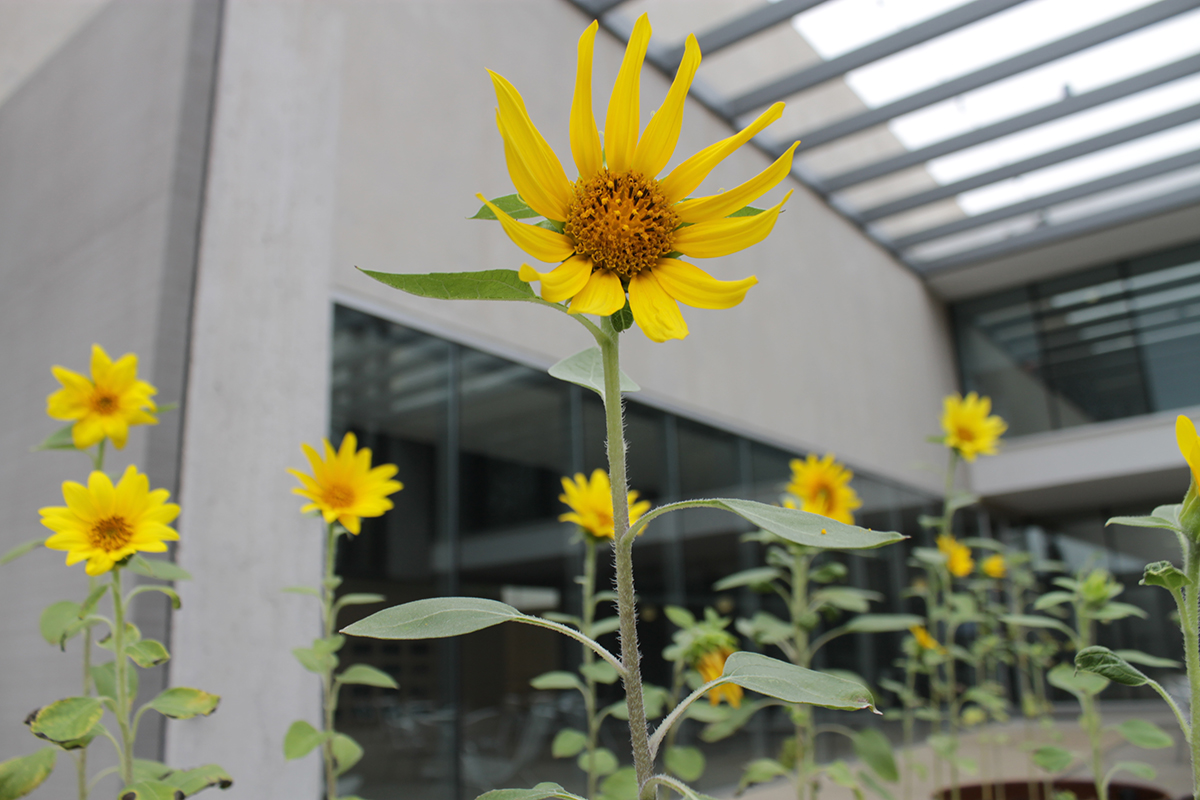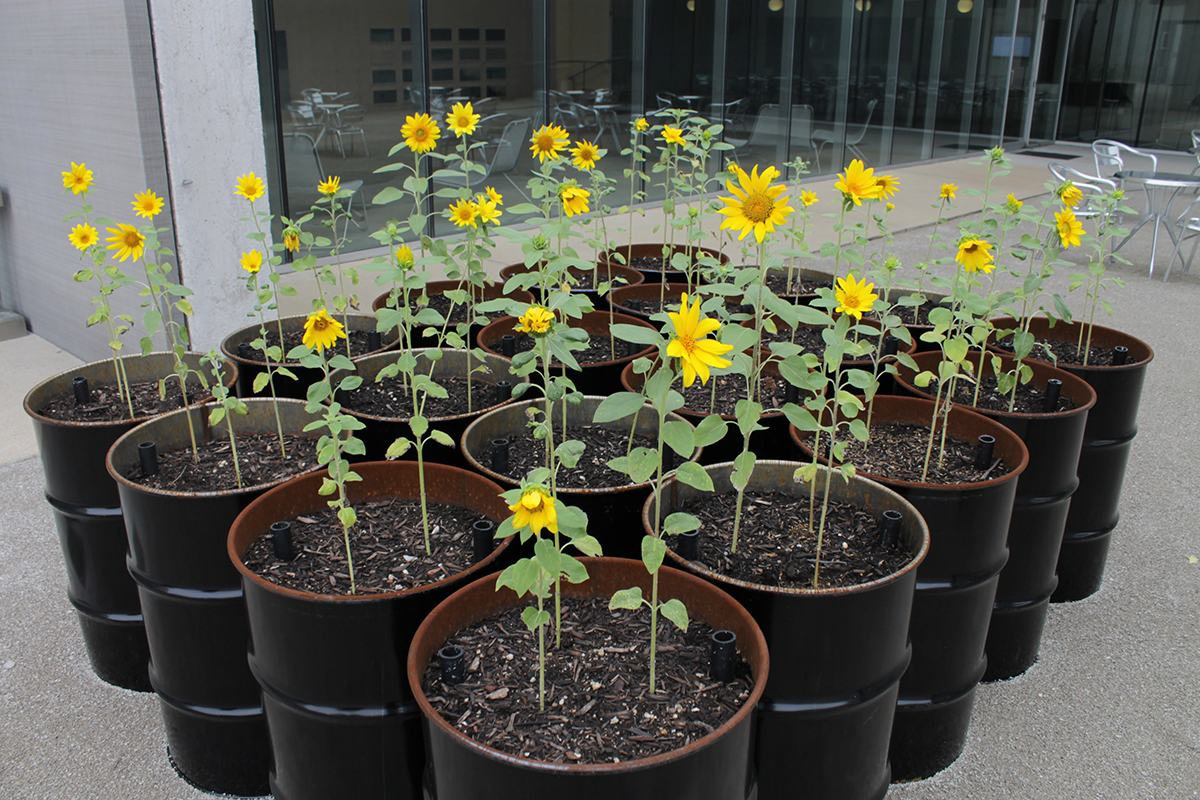In collaboration with Don Koster and Richard Reilly of the Sunflower+ Project: StL, CAM presents Sunflower+ Project: CAM, on view in the Museum’s courtyard July 16 through October 4, 2014. The installation comprises twenty oil drums planted with sunflowers that will grow from seedlings to mature plants. Addressing nationwide issues of urban greening (increasing the number of plants within cities), neighborhood beautification, and soil condition improvement, Sunflower+ Project: CAM is presented as a point of dialogue with the exhibition Mel Chin: Rematch, opening September 5, 2014. This major retrospective explores the work of conceptual artist Mel Chin, who pioneered the use of plants as remediation technology, particularly the possibilities and limitations of metal accumulating plants, through an installation of art.
The Sunflower+ Project: StL was founded by Don Koster, architect and Senior Lecturer at Washington University in St. Louis, and Richard Reilly, Energy Programs Manager of the Missouri Botanical Garden’s EarthWays Center. A winner of the 2012 Sustainable Land Lab design competition developed by Washington University in partnership with the City of St. Louis, the Sunflower+ Project: StL has planted sunflowers in empty lots in Old North St. Louis and the Central West End in order to address one of the region’s greatest challenges: vacant land. The team is also testing the feasibility of using sunflowers—which are able to grow in soil with high concentrations of metals—to remove contaminants from the soil.
The Sunflower+ Project: CAM is scheduled to bloom at approximately the same time as the opening of Mel Chin: Rematch on September 5. Since 1990, when he began the work Revival Field, Mel Chin has been a forerunner in bringing an artist’s viewpoint to the scientific process of soil remediation. Organized in partnership with agronomist Rufus L. Chaney of the US Department of Agriculture, Revival Field was the first field test of the use of hyperaccumulator plants—or plants that can absorb metals through their roots and remove them from the soil—in the United States. Chin conceived of it as a sculpture, with the final work of art being represented by a revived ecology.
The Sunflower+ Project: CAM is being presented in conjunction with Marfa Dialogues: St. Louis, a collaboration between The Pulitzer Foundation for the Arts, Marfa Dialogues, and Public Concern Public Concern Foundation, taking place Wednesday, July 30–Sunday, August 3. Throughout the fall, the Museum will collaborate with a variety of community partners to host a number of related programs, including discussions on socially engaged art practices and workshops and demonstrations on soil testing and remediation, gardening, and sustainability.
Donald N. Koster III, AIA, NCARB, LEED AP, is an architect and educator committed to the design and research of contemporary sustainable environments. He is a Senior Lecturer at the Sam Fox School of Design Visual & Arts at Washington University in St. Louis and is the principal of an award-winning design practice. Koster’s practice and research are concerned with the development of place-based, site, and environmentally responsive design solutions with a focus on sustainable community redevelopment and contemporary housing design.
Richard Reilly, LEED AP, BPI BA & EP, is the Energy Programs Manager of the EarthWays Center at the Missouri Botanical Garden. With more than thirty years experience in construction, design, and the arts, his practice revolves around environmental and sustainability issues with an emphasis on material re-use and certified green construction. He is on the Board of Directors of Habitat for Humanity Saint Louis and the Advisory Board for St. Louis University’s Center for Sustainability.
Sunflower+Project: CAM is organized for the Contemporary Art Museum St. Louis by Alex Elmestad, Manager of Public Programs and Interpretation.

